 You’ve worked hard perfecting your recipes, hiring the right people, finding the perfect location, and creating a successful business.
You’ve worked hard perfecting your recipes, hiring the right people, finding the perfect location, and creating a successful business.
So why wouldn’t you do everything you can to protect all that sweat equity, including getting the proper insurance for your restaurant, bar, or nightclub?
Perhaps it’s because while most restaurant owners know they need insurance to protect their business, it’s easy to make bad decisions based on a lack of information, thereby exposing your restaurant and your personal assets to risk.
Here are 4 common misconceptions about restaurant insurance:
Misconception #1. You Can’t Get Blood From a Stone
You may think that if you don’t have a lot of money that you simply cannot get sued. The truth is that no matter how big or small your business is or how much money you have, if a settlement against you is awarded, the courts will do everything they can to collect that money. They may seize your equipment, your bank account, and sometimes your personal assets.
“While formal business structures like an LLC are an important first step toward safeguarding your personal assets, there’s a common misconception that incorporating will automatically protect you from all personal liability,” according to Huffington Post. “However, there are still several situations where you can be personally liable.”
One example the Huffington Post offers is, “If your actions injure someone, you can still be personally liable. This is because an LLC or corporation can protect you from personal liability for contractual lawsuits, but not against tort lawsuits. This is the reason that most professionals such as doctors take out a good professional liability insurance policy.”
Misconception #2. Nobody WIll Sue Me
We live in a very litigious society. No matter how careful you are, there is always a chance of being sued. Even if it’s a bogus claim that is dismissed, legal fees may be more than your business can afford. According to Rocket Lawyer, “The threat of a lawsuit is very real: over 100 million cases are filed in US state courts every year.”
Misconception #3. Insurance is Just Too Expensive
Do you have enough in savings to cover your restaurant if a customer or employee sues you? Probably not! A lawsuit can be costly. “Hiscox claims data for small and mid-sized businesses (under 500 employees) indicate that one in five will face employment charges with an average cost to defend of $125,000, which includes expenses such as attorney’s fees and settlement costs,” according to the Insurance Journal. “For those that did have insurance coverage, the average deductible cost was only $35,000, compared to the $90,000 balance paid out by their insurance company.”
Ask any restaurant owner who has been sued and did not have the right insurance, and they’ll tell you that the cost of insurance is worth the protection. Ask any restaurant owner who has been sued and had the right insurance, and they’ll tell you that the cost of insurance is worth the peace of mind.
Misconception #4. I Only Hire a Few Employees, so I don’t need Workers’ Compensation Insurance
Each state has its own laws about which employers are required to provide Workers’ Compensation insurance to their employees. According to the Pennsylvania Department of Labor & Industry, “Workers' compensation coverage is mandatory for most employers under Pennsylvania law. Employers who do not have workers' compensation coverage may be subject to lawsuits by employees and to criminal prosecution by the Commonwealth.”
Protect Your Future with Affordable PA Restaurant Insurance
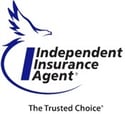 Don’t put your restaurant at risk. Trust the experienced Independent Insurance Agents at American Insuring Group to separate fact from fiction. You'll be confident knowing your restaurant is protected with affordable, high quality restaurant insurance.
Don’t put your restaurant at risk. Trust the experienced Independent Insurance Agents at American Insuring Group to separate fact from fiction. You'll be confident knowing your restaurant is protected with affordable, high quality restaurant insurance.
Get started by calling us at (800) 947-1270 or (610) 775-3848, or contact us online.



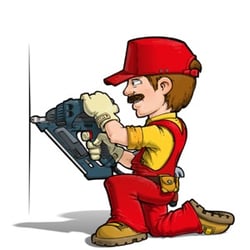 Contractors and handymen, do you remember the days before nail guns? When you had to use a hammer to nail something.
Contractors and handymen, do you remember the days before nail guns? When you had to use a hammer to nail something. More people are getting into the food truck business than ever before. Food trucks offer a more affordable and flexible option for first-time entrepreneurs. Plus, many restaurateurs are adding food trucks to increase brand awareness and to cash in on the current growth of the food truck industry.
More people are getting into the food truck business than ever before. Food trucks offer a more affordable and flexible option for first-time entrepreneurs. Plus, many restaurateurs are adding food trucks to increase brand awareness and to cash in on the current growth of the food truck industry.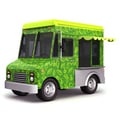 It may sound complicated and perhaps a bit overwhelming, but the independent agents at American Insuring Group can walk you through your options and help you determine the best food truck insurance for your operation.
It may sound complicated and perhaps a bit overwhelming, but the independent agents at American Insuring Group can walk you through your options and help you determine the best food truck insurance for your operation.  If you own a construction company, the chances are good that you subcontract some or all of the work to another party. You can (and should) do your due diligence to ensure that any subcontractor you hire has a reputation for doing a good job safely. However, it’s impossible to foresee all of the potential financial and operational risks that may arise with a project, particularly with a third-party.
If you own a construction company, the chances are good that you subcontract some or all of the work to another party. You can (and should) do your due diligence to ensure that any subcontractor you hire has a reputation for doing a good job safely. However, it’s impossible to foresee all of the potential financial and operational risks that may arise with a project, particularly with a third-party.  To learn more about protecting your business,
To learn more about protecting your business, 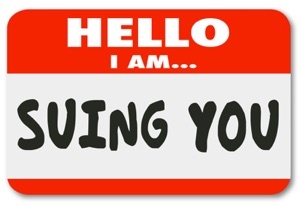 We live in a litigious society, and no matter how careful you are or how small your business is, you may find yourself at the wrong end of a lawsuit. Every year more than 100 million lawsuits are filed in the U.S. every year, according to
We live in a litigious society, and no matter how careful you are or how small your business is, you may find yourself at the wrong end of a lawsuit. Every year more than 100 million lawsuits are filed in the U.S. every year, according to  If your company has never been struck by catastrophe, consider yourself lucky! But that doesn’t mean that your luck will hold out forever. There’s always a flood, hurricane, explosion, earthquake, lightning, or terror attack waiting around the bend.
If your company has never been struck by catastrophe, consider yourself lucky! But that doesn’t mean that your luck will hold out forever. There’s always a flood, hurricane, explosion, earthquake, lightning, or terror attack waiting around the bend. To learn more about preparing and protecting your business with the right types and amounts of commercial insurance,
To learn more about preparing and protecting your business with the right types and amounts of commercial insurance, 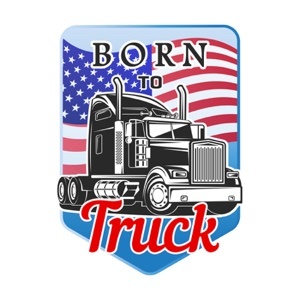 You invested a lot of money to start your own for-hire trucking business. Now it’s beginning to pay off as your schedule fills and you are spending more time on the road.
You invested a lot of money to start your own for-hire trucking business. Now it’s beginning to pay off as your schedule fills and you are spending more time on the road.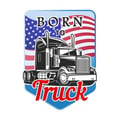 Signing on with a reputable motor carrier can mitigate some of those insurance expenses, but whether you drive under permanent lease or your own authority, you will need to sit down with an expert on for-hire trucking insurance to help you get the best coverage at a competitive price.
Signing on with a reputable motor carrier can mitigate some of those insurance expenses, but whether you drive under permanent lease or your own authority, you will need to sit down with an expert on for-hire trucking insurance to help you get the best coverage at a competitive price.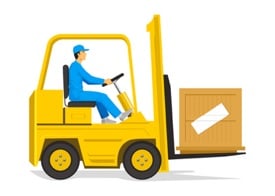 The Occupational Safety and Health Administration (OSHA) estimates that power industrial trucks (PIT), often called forklifts or lift trucks, cause approximately 85 fatal accidents each year, almost 35,000 accidents that result in a serious injury, and about 62,000 non-serious accidents. Accidents can be trajic for employees and can affect
The Occupational Safety and Health Administration (OSHA) estimates that power industrial trucks (PIT), often called forklifts or lift trucks, cause approximately 85 fatal accidents each year, almost 35,000 accidents that result in a serious injury, and about 62,000 non-serious accidents. Accidents can be trajic for employees and can affect  Starting an independent trucking business is expensive. But, if you get a good return on your investment, it’s worth it. You can be your own boss and have a career that offers excellent earning potential. And, you have a choice to lease your trucks and services or to become an independent carrier.
Starting an independent trucking business is expensive. But, if you get a good return on your investment, it’s worth it. You can be your own boss and have a career that offers excellent earning potential. And, you have a choice to lease your trucks and services or to become an independent carrier. Most employers know that to reduce their
Most employers know that to reduce their  To learn more about lowering your workers comp costs,
To learn more about lowering your workers comp costs, 



